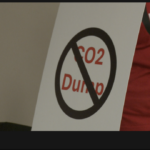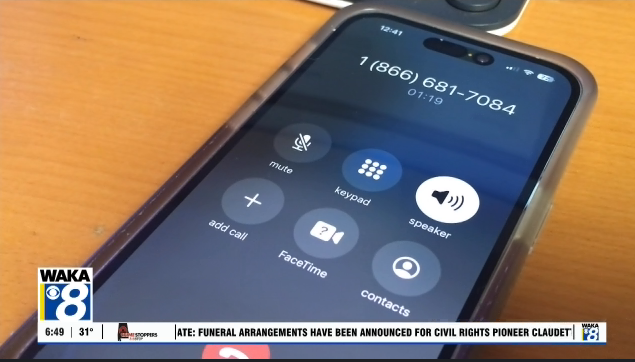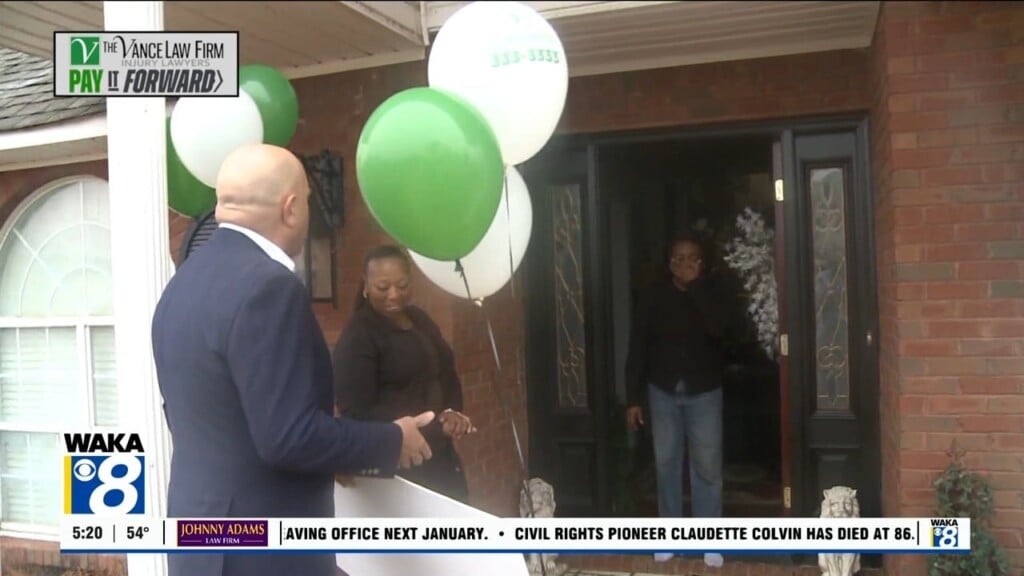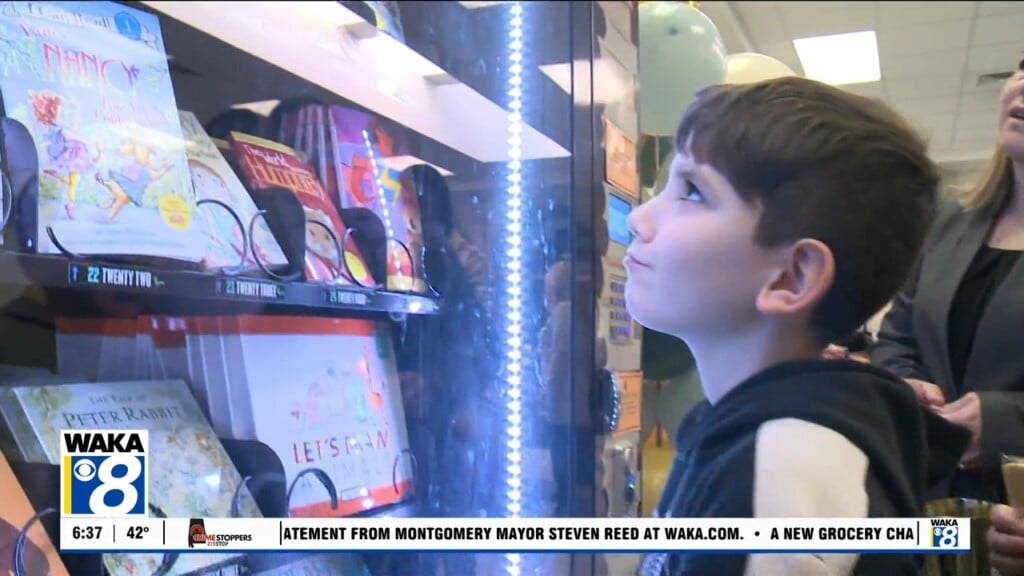“Not in our backyard”: Town hall held in opposition of proposed carbon dioxide storage project in Covington County

Dozens of residents and community leaders came together Thursday night for a town hall in Covington County.
The town hall, held at the Rodney J Evans Civic Center near Lake Jackson in Florala, drew a packed room of people who are opposed to a proposed underground carbon dioxide storage facility, known as the Pine Hills Storage Hub.
According to the company behind the project, Reliant CCS, The Pine Hills Storage Hub pipeline would serve as Alabama’s flagship carbon storage facility. The company says the storage hub will safely store millions of tons of carbon dioxide (CO2) deep underground beneath multiple layers of natural protective rock – greater than 3,000 feet.
Above ground, working forestland will remain in use for timber, recreation, and hunting. Injection well and monitoring well pad sites are only a few acres in size and will be scattered across the vast project area. The productive forests, farmland, or recreational lands will continue with minimal surface footprint from carbon storage operations.
According to its website, Reliant officials say if approved, the site would be monitored and regulated by state and federal agencies.
However residents say they were never consulted about the proposal.
“I found out about the project when everyone else did when there was a commission meeting announced in Andalusia,” says Wesley Laird. “Everyone’s initial reaction was why are we just now hearing about this.”
Laird is a local lawyer and farmer in Covington County. His farmland is surrounded by land where the proposed hub would be located. He says he’s fearful the project would contaminate the counties water supply, and hurt farms and wildlife. He said he researched the project and didn’t like what he found out.
“I got more and more concerned about it because of the potential to affect the aquafier drinking water; earthquakes or seismic activity, disturbing the rock formations formation under the ground. We don’t want this. Go somewhere else,” says Laird.
Courtney Luckett of the new organization No CO2 Dump is one of the co-organizers of the town hall. She and her partners are currently in the beginning stages of getting a non-profit together to try to end the project.
“I cannot see how this is a good deal for anyone. More than anything, what I see is a scam. It’s another green initiative that isn’t green. They’re talking about carbon emissions reduction but they are not reducing emissions. They are relocating them to a place they were never intended to be,” says Luckett.
WAKA Action 8 News reached out to Reliant CCS for an on-camera interview. Jeff Emerson of Reliant says the Pine Hills Storage Hub will operate under the strictest federal safety standards set by the EPA Class VI Underground Injection Control (UIC) program. The UIC program was created in 1974 as part of the Safe Drinking Water Act and its purpose is to protect underground sources of drinking water.
Emerson says CO2 pipelines aren’t new and they’ve operated safely in the U.S. since 1972. He says with over 5,000 miles in operation today, these pipelines transport approximately 80 million metric tons of CO2 per year.
Below is the statement from the company:
Statement from Reliant CCS:
“Reliant has had many conversations with community leaders and residents about the Pine Hills Storage Hub over the past several weeks. We’ve heard a wide range of sincere questions and concerns.
As we’ve said, this project is still in the very early stages of development. We have submitted a permit application with the EPA, and that review process typically takes more than a year. This is a rigorous process to ensure that before the Pine Hills Storage Hub can move forward, it is proven safe – safe for drinking water, safe for the land and safe for all the people of the area. We anticipate it will be several years before construction can begin.
Because the project is in such an early phase, there may be some questions we cannot yet answer definitively. We want to be thorough and accurate, so we’ll take time to carefully review the questions and feedback we’ve received. Right now, our focus is on gathering information and ensuring the community’s questions are fully addressed before moving forward.
This will be a lengthy process, and Reliant is committed to safety, transparency and community involvement at every step.”
State lawmakers also attended Thursday night’s town hall.
“This is a great showing of people and their support for their community. What this project would mean to them, the impacts that it has and so we’re grateful to be here to listen and to share our ideas of what we can do as legislators in Montgomery,” says Senator Josh Carnley, who represents Covington, Coffee, Pike and Dale counties.
Carnley says the project is dominated by federal policy through the EPA Clean Air Act of 2010 and the 2022 Inflation Reduction Act.
Carnley says he’s working with other state lawmakers, and the governor’s office, to come up with a local referendum for a constitutional amendment to allow the people of Covington County to vote on in next year’s primary elections. House Bill 61 was pre-filed on Thursday.
“I think you can see what impacts our environment, impacts those around us and so we have to be very careful of what we’re doing and not just jump out there because the money is right for some people, not this community and this county. And understand the things we do to our enviromemtn here has implications much further than these county lines,” says Sen. Carnley.
Representative Matthew Hammett represents District 92, which includes Covington County, and portions of Coffee and Escambia counties. He encouraged people to write letters to both Governor Kay Ivey’s office and the state’s Oil and Gas Board opposing the project.
Covington county leaders say they’re planning another town hall to give Reliant CCS leadership a chance to answer questions and concerns —- at a later date.






